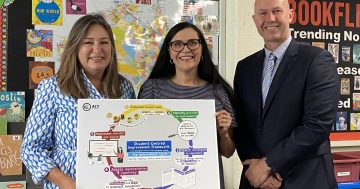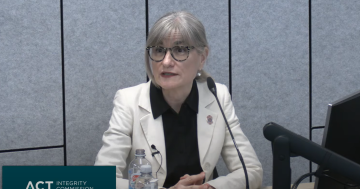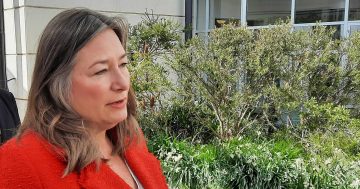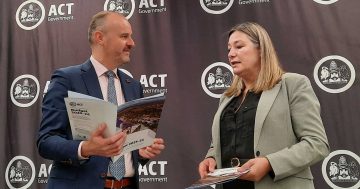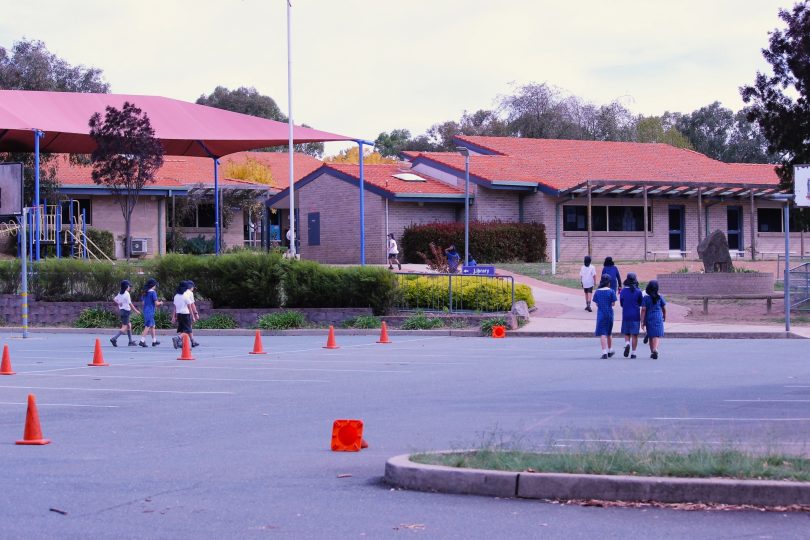
Students at Covenant Christian School in Gordon. Photo: Covenant Christian School.
As schools await final advice from today’s National Cabinet meeting, the Association of Independent Schools of the ACT (AISACT) said all its member schools would follow the advice of health authorities.
The ACT Education Directorate is expected to announce final back-to-school plans for public schools in the Territory by the end of the week – likely after National Cabinet meets today (20 January).
AISACT executive director Andrew Wrigley said conversations with independent school principals in Canberra have indicated everyone is working very hard with their teams to look at “all sorts of scenarios” for the return to school.
“The preference from everybody is that kids return day one, term one … but there is, of course, a bit of healthy caution with that,” Mr Wrigley explained.
“We’re hoping numbers don’t get to the extent that it makes schools operating impossible.”
Mr Wrigley said principals are mindful of the impact of COVID-19 on staff who may become contacts or positive cases and whose positions will need to be filled.
“This does put extra planning constraints and stresses on schools, but they are all working through that,” he said.
While remote learning isn’t the “preference”, Mr Wrigley said it could be an option if required.
“We know what to expect now, and while it would be a different situation to last year, it is a known field now,” he said.
Above all, Mr Wrigley said schools would make decisions in line with the advice provided by the ACT’s Chief Health Officer and health authorities. This includes the use of rapid antigen tests.
“Our preference is that health authorities will set a policy position around the use of rapid antigen tests and this can be followed,” Mr Wrigley said.
“We’d prefer to see them used as a test-to-stay program rather than a screening tool,” Mr Wrigley said.
However, Mr Wrigley said some schools have acquired their own supplies of the test kits and have established protocols regarding their use.
Discussions took place in the ACT last year around a rapid antigen test pilot program, but this was dumped due to the impracticality of running such a program at the tail end of the school year.
After school went back last year, more than 30 schools in the ACT were impacted by COVID-19 intrusions on campus. At some points, entire school campuses were shut, while others could be managed by simply quarantining and testing affected cohorts.
An official back-to-school framework is expected to be agreed on at the National Cabinet meeting, covering protocols around the use of rapid antigen tests, as well as quarantine periods and guidelines for close contacts.
While NSW has yet to release its final plans on the use of rapid antigen tests, it’s been reported that students will be asked to take at least two rapid antigen tests a week under a plan being developed by both the NSW and Victorian governments.
The NSW Government has also suggested the expected shortage of teachers due to furloughed workforces could be addressed by asking retired teachers, principals and final year teaching sudents to fill positions.
Queensland and South Australia have delayed the term one return to school, although Prime Minister Scott Morrison has urged other states not to follow suit.
School teachers have been included in national guidelines under which they could attend work if identified as close contacts and are asymptomatic. However, it’s up to states and territories to implement these rules.












